newRow("OrderReference") = line.Substring(line.IndexOf("*1003") + 5, line.IndexOf("*", line.IndexOf("*1003") + 5) - line.IndexOf("*1003") - 5)
There you have it. Very long and ugly. I was thinking about this:
Dim indexPlus = line.IndexOf("*1003") + 5
Dim indexMinus = line.IndexOf("*1003") - 5
newRow("OrderReference") = line.Substring(indexPlus, line.IndexOf("*", indexPlus) - indexMinus)
But that introduces new and meaningless vars. Unsatisfying.
Maybe RegEx is the savior here?
Unfortunately I mustn't change the input data :-(
The input data consist of the BWA-format (popular with books). Here you can see the part in question:

All codes in this example set are required. Only corresponding values change.